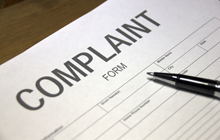When business couples break up. How should CPAs respond to disclosure demands?

Liability lawyer James Lane on how to navigate the legalities of financial disclosure
TORONTO, April 6, 2018 – As a professional liability and insurance lawyer, one of the most common questions I get when advising accounting practitioners is how to respond to demands for financial disclosure after the breakup between the partners or shareholders of an owner-managed business.
A typical scenario arises when one spouse (let’s say, the husband, in this example) has been managing the business and the other is a director, officer and shareholder. How should the accountant respond to a letter from the wife’s lawyer demanding information required for purposes of valuing the business? The situation appears more complicated, for instance, if the accountant prepares personal tax returns for the husband and wife.
 |
James Lane, founding partner, Bersenas Jacobsen Chouest Thomson Blackburn LLP |
Your obligations as a professional accountant
The key to untangling this knot is to focus on the question: Who is the client? The accountant has a professional obligation to provide a client with the client’s own information in the accountant’s possession, subject to being paid for the reasonable costs of doing so. The accountant also has a professional obligation not to provide confidential information about the client to any other party without the client’s consent, or other lawful authority, such as a court order.
In this example, the client is the business corporation to which the financial information relates. As the accountant, you are under an obligation to make information available to that corporation through its proper management.
The wife is your client for personal tax returns, but that gives her no right to information in respect of a separate client, the corporation. Neither does her status as a director, officer or shareholder give her entitlement to demand that you disclose financial information about the company. She may be entitled to obtain financial information about the company but not directly from the company’s accountant.
The proper course is to respond that the wife should make the request to the management of the corporation. You should offer, in the event that the corporation does not have the information in question, to provide that information to the corporation. The corporation can then make it available to the wife if it so chooses.
When you should obtain legal advice
If the wife is being denied information to which she is entitled, then her recourse is to seek a court order demanding disclosure of that information. You should remain scrupulously neutral in the dispute. You may insist that the wife obtain an order for you to disclose information directly. However, you should not oppose the order being sought and should probably not take any position on issues in dispute.
If there is a question as to who is the management of the corporation, you should ask yourself who you were dealing with in the capacity of manager before the shareholder dispute arose. If both the husband and wife in our example have been active in the day-to-day management of the company, or you had been dealing with both in respect of the company’s financial affairs, and you get conflicting directions, that would definitely be the time to speak to a lawyer.
The wife’s status as a director and officer can also complicate things. The board of directors can also speak for the corporation. However, before taking direction from the board, the accountant should be satisfied that direction received has been properly approved by resolution of the board. Again, probably time to get legal advice.
If there is a question as to what information you are required to provide, the short answer is that you must provide material belonging to the client, which would include any source documents, or other documentation obtained from the client, and any final work product for which you were paid. It would not include the accountant’s own working papers.
James Lane is a founding partner of Bersenas Jacobsen Chouest Thomson Blackburn LLP, a boutique litigation firm in Toronto. His practice includes advising and representing CPAs at firms of all sizes in defending liability claims and discipline hearings, responding to professional standards and conduct investigations, and providing practice and professional conduct advisory services to CPA firms. Email James at jlane@lexcanada.com.










(0) Comments